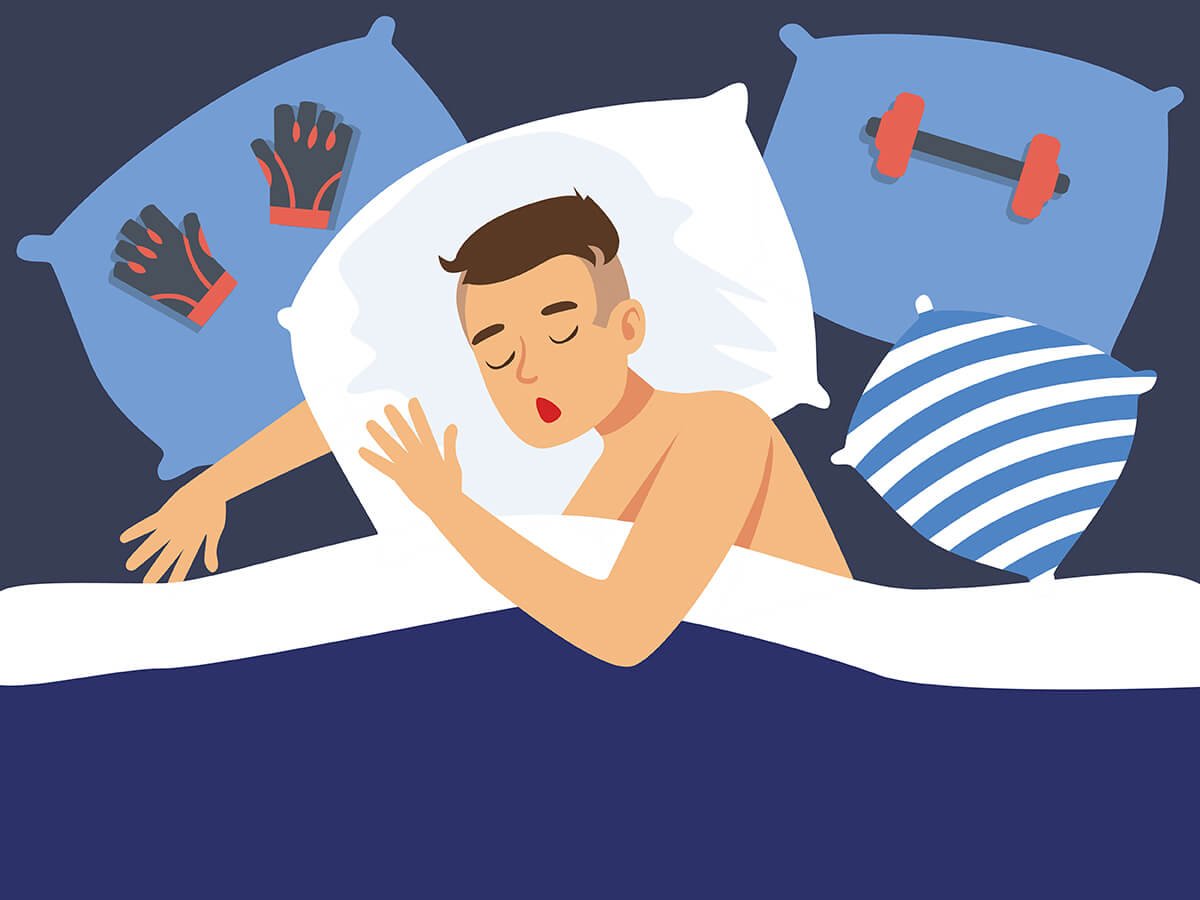Sleep is the most powerful recovery method. Also, It’s scientifically proven that during sleep the body recovers better and faster. Therefore, quality sleep is necessary before and after workouts. Growth hormone is affected during sleep, and it supports muscle growth, bone building, recovery, and muscle repair. To assure quality sleep and fast muscle recovery, it is important to have a relaxing and comfortable environment where you sleep.
The ideal sleep atmosphere allows you to relax, and enjoy up to 8 hours of sleep. Also, helps your body to repair and boost muscle recovery. A lot of muscle damage may occur during the day or while training. However, when you sleep, growth hormone and testosterone operate at their best. As a result, recovery is achieved. This is why sleep is very important for muscle recovery.
Recovery stages and how sleep impacts muscle recovery
1 . Rapid Eye Movement (REM) sleep, which happens in 90-120 minute circle at night. For grownups, this accounts for 25% and REM controls the whole sleep period. This is specifically in a few hours before you get up. Therefore, REM boosts muscle recovery by feeding the brain with the energy it requires during your waking time. It also recovers the mind to its normal efficient state.
2 . Non-REM sleep is also well-known as deep sleep or slow-wave period. This is very important sleep stage that reinstates the body and supports muscle recovery. More than 40% of sleep is Non-REM sleep period. During this time your respiration is slower, deeper, and your blood pressure descends. The brain rests properly with small activity. As a result, there is adequate blood provision for your body muscles.
During Non-REM sleep, oxygen and necessary nutrients are provided to your muscles. It assists growth, healing, restore, and recovery of body muscles. More muscles and body tissues are therefore renewed during this interval of quality sleep. This makes Non-REM sleep a very significant stage that increases muscle recovery.
Similarly, as the body grasps the Non-REM phase, the pituitary gland also liberates a growth hormone that encourages tissue growth, muscle mends, and recovery. This means that not enough sleep, there is a crucial drop of the growth hormone production. Insufficient in growth hormone drives to loss of muscle and subvert recovery.
Consequently, you need to sleep for 7 to 8, hours a night. It encourages enough of growth hormone that assist muscle growth, repair, and recovery. As an athlete, this is specifically important if you willing to wake up for an effective training session. During sleep, protein synthesis, and muscle growth is accomplished. Growth hormone is also liberated to supply you the energy you need throughout the day.
Furthermore, during sleep the corps storage blood glucose as muscle glycogen in the muscles. As glucose exits various parts of the body, including the liver, muscle glycogen is the most favoured store location. It assists the body to generate more energy that boosts recovery, repair, and growth. This means without enough sleep the body cannot deliver blood glucose to muscles.
Sleep is essential as it encourages energy production for the normal performance of the body. Similarly, it makes you in a good emotional state that can enhance your performance. With such pleasure during the day, you’ll appreciate a restful sleep that also boosts muscle recovery.
Besides, quality sleep is essential before any training session. It increases your endurance and maintains your tranquil and in calm mind-set. All these operate together in the far better and quicker recovery and muscle growth. As a result, you need to get quality sleep from 8 to 9 hours of sleep to accomplish better muscle recovery.

